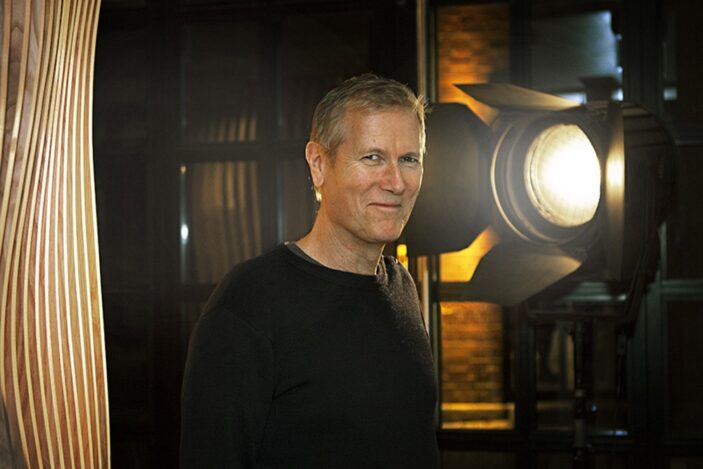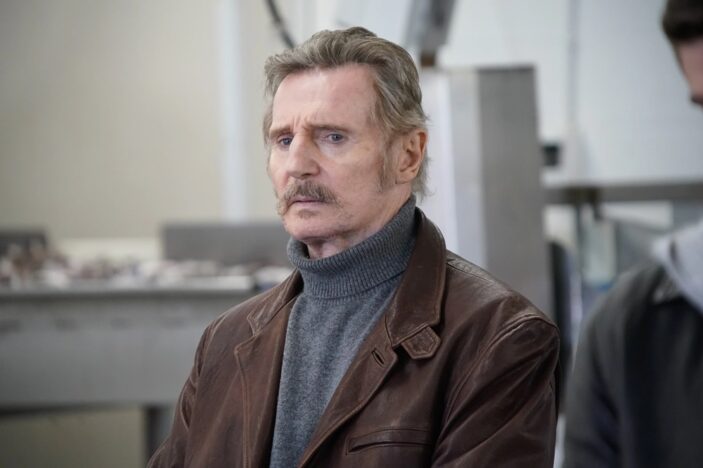
Following their collaboration on 2019’s Cold Pursuit, director Hans Petter Moland and star Liam Neeson are reuniting for the crime drama, Absolution, which tells of an aging ex-boxer working as muscle for a Boston crime boss who receives an upsetting diagnosis. Despite a faltering memory, he attempts to rectify the sins of his past and reconnect with his estranged children, determined to leave a positive legacy for his grandson, even though the criminal underworld aren’t done with him and won’t loosen their grip willingly.
As the film arrives on digital platforms in North America and celebrates being the number 1 most watched film on Prime Video Australia, Peter Gray spoke with Moland about reuniting with his star, the enjoyment he found in subverting expectation of “a Liam Neeson movie”, and which unlikely film inspired his path to becoming a director himself.
You’ve made primarily Norwegian films at this point, but in 2019 we saw Cold Pursuit, which could be your considered Hollywood debut. What was it about Absolution that drew you back as your English-language follow-up?
I did make a film called The Beautiful Country back in 2004 which was an American film as well, but it was quite simple. (Absolution) was a terrific story and an opportunity to work with Liam (Neeson). Yeah, it was kind of a no brainer.
In terms of films in general, was there on film or one director that inspired you to be come a director yourself?
There probably wasn’t just one, but I didn’t grow up in a family that worked in the arts, so it was all at my own private fascination with it. I only saw my first movie when I was seven. We only had a television when I was 12. The first film I saw was 101 Dalmatians, the animated (one), and growing up on a farm, I totally missed the point. I couldn’t understand what the big deal was with so many puppies. Why couldn’t she have just seven or eight of them for this coat? I was so used to seeing animals perish, so the point of the story was missed on me.
I guess, at a young age, Clint Eastwood’s spaghetti westerns were initially a great source of attraction. Later on, I grew up and went to film school, and it was the golden era of American cinema, if you will. The 70s were a wonderful time of exploration and courage, and the use of cinematic language at that time by really gifted directors, who to this day are working, was coming up. It was fantastic. When I saw Badlands, it blew me away, and I had the luck of having (Terrence Malick) produce one of my films. It showed (me) that film could be so many different (things), or that film language and tone of voice could be done in so many different ways. But it’s the human being that is directly responsible for me believing that it was possible to make movies.
Looking back at your filmography, you’ve obviously dabbled in many different genres. Is there one genre that you’d still like to tackle?
I have made all kinds of different things. Yeah. For me, every film is an exploration. I go into it and find it thoroughly enjoyable to explore. Obviously there’s something initially that attracts you, but as you get into it you find other aspects that are, perhaps, even more profound, or funny, or whatever. I like the collaborative part of it. Filmmaking, for me, is the luxury of making things together with other human beings. I could certainly easily see making another drama, but also another comedy. Even in the most tragic aspects of life, there are moments that are inadvertently humorous. Tragedy and tragic comedy can live side by side. And it’s always fun to try and make that work in film. But more than anything, it’s using cinema and cinematic language to explore material.
As you said about reuniting with Liam Neeson. Have you noticed a difference in him as an actor compared to when you first worked together?
He wasn’t exactly a novice when I worked with him (laughs). But, you know, when you work with somebody and you find that thoroughly exciting, it’s the reason you want to work with them again. Of course, I could use that initial foundation and trust you find in exploring a relationship, and I’m so grateful for his trust in me. Making this film, it was a short shooting schedule. It required that we’re all on the same page and we’re in this for the right reasons. He’s a really hard working guy. He’s a stand up (guy) and he knows better than anyone that it’s hard work, and it only becomes brilliant when you put 110% effort in.

I feel like we have an expectation as to what a Liam Neeson feature is now in this post-Taken stage of his career. You see the poster imagery and the title evokes a certain feeling. This was far more emotionally driven than it was reliant on action. Was that always the case with Tony Gayton’s script? What we see on screen is very much the original intention of the script?
That was always the pitch, yeah. It’s a story about a guy who gets sick and dies. It’s not a very joyous affair. This isn’t a very fair comparison, but One Flew Over the Cuckoo’s Nest…if you’re trying to pitch that, it’s also not a very joyous story. A guy goes to be observed at a mental institution, find out he’s trapped there, and then he’s strangled by one of the fellow patients. When you watch that movie (though), there’s so much more to it. There’s so much more hope and exuberance about humanity and human potential. That movie was a huge commercial success, and that speaks volumes to the quality of the film, but also that people, if they are given half a chance to explore it, will watch something like that and come away fulfilled. The ending of that film is fabulous.
And without stretching the comparison too far, there’s something very redeeming about where Liam’s character ends up in the film as well. I’m very happy and very proud of the outcome. It’s a challenging film to make and, as you say, there’s a lot of expectations when Liam Neeson is there with gangsters and guns. Breaking that expectation is part of the fun.
Absolution has themes of forgiveness and redemption running throughout this. Those stories are always massively complex. Was there a way for you to ensure that Liam’s arc always felt authentic?
There are no guarantees when you make movies. I can tell you that it’s a high-wire act and you have to trust that the people you are working with are doing their utmost too. While you’re making it, you get a whiff of, “Oh, this is terrific”, but you never know until the end. You have to have ambition, and you have to try and say, “Well, that is important for this story?” It was important to treat (Liam’s character’s) illness seriously. It was important to have a character that’s grounded so that he’s not just a fictionalised device for an excuse for some action. This is actually a human being who’s living this, and even though there’s some action in the film, it’s pretty deeply rooted in a rather mundane, everyday world.
Was there anything that shaped the final product in a manner that you weren’t expecting? Anything that maybe showed itself in the edit, or a choice that Liam made that was different than what you were expecting?
Oh, sure, yeah. That’s the wonders of collaboration. There are obstacles, but there are also gifts along the way, and part of the job of being a director is recognising those gifts and when something unusual or spectacular or refined or sublime is offered to you. “Is this great? Does this belong in the film?” If you incorporate something that’s outside of your game plan, it might alter the balance of the film. I try to say that you start out with a football field and somebody gives you 15 kilos of jello, and you’re supposed to walk across the field to the other side and deliver it. As you start walking, somebody tells you you’re too slow, so you start walking faster. But then people start coming and adding to your plate of jello, and you have to keep balancing. Then, all of a sudden, it’s not a flat surface anymore. There’s some hills. The whole time you’re balancing this plate. That’s what the process of filmmaking is. It’s both being alert and being alive enough to bring on those things.
Absolution is now available on all digital platforms and on video on demand in the United States and to stream now on Prime Video in Australia.
